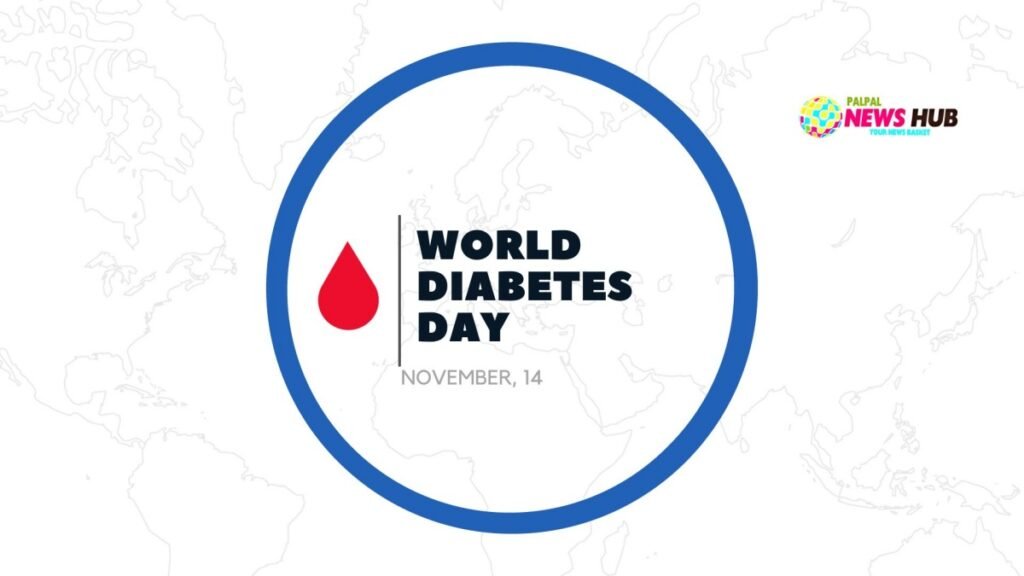
World Diabetes Day is celebrated every year on 14 November to raise awareness about diabetes, a chronic condition that affects millions of people around the world. Diabetes occurs when the body cannot produce or use insulin properly, leading to high blood sugar levels that can damage various organs and tissues. Diabetes can cause serious complications such as heart disease, stroke, kidney failure, blindness, and amputation.
The theme for World Diabetes Day 2023 is “Access to Diabetes Care”. The theme emphasizes the need for people with diabetes to have access to the care they need, including education, medication, technology, and support. It also highlights the importance of knowing the risk factors and symptoms of diabetes, and how to prevent or delay the onset of type 2 diabetes and its complications.
One of the key factors in preventing or managing diabetes is adopting a healthy lifestyle, which includes eating a balanced diet and being physically active. Diet plays a crucial role in controlling blood sugar levels and preventing spikes and drops that can affect the health and well-being of people with diabetes. However, many people with diabetes are confused or unaware of what foods they should eat and what foods they should avoid.
According to diet experts, people with diabetes should follow some general guidelines when choosing their foods:
- Eat more foods that are rich in fiber, such as fruits, vegetables, whole grains, beans, nuts, and seeds. Fiber helps slow down the absorption of sugar into the bloodstream and keeps you feeling full longer.
- Eat less foods that are high in sugar, such as sweets, desserts, soft drinks, juices, and processed foods. Sugar can quickly raise blood sugar levels and contribute to weight gain and inflammation.
- Eat less foods that are high in fat, especially saturated and trans fats, such as red meat, butter, cheese, fried foods, and baked goods. Fat can interfere with the action of insulin and increase the risk of heart disease and stroke.
- Eat moderate amounts of foods that are high in protein, such as lean meat, poultry, fish, eggs, dairy, and soy. Protein helps build and repair muscles and tissues, and can also help regulate blood sugar levels.
- Eat small and frequent meals throughout the day, rather than large and infrequent ones. This can help maintain a steady blood sugar level and prevent overeating and cravings.
- Drink plenty of water and limit the intake of alcohol and caffeine. Water helps flush out toxins and hydrate the body, while alcohol and caffeine can dehydrate and affect blood sugar levels.
Some of the specific foods that people with diabetes should avoid or limit are:
- Ice cream: Ice cream is a delicious treat, but it is also loaded with sugar and fat, which can spike blood sugar levels and increase the risk of obesity and cardiovascular disease. People with diabetes should avoid ice cream or opt for low-sugar or sugar-free alternatives.
- Maida or refined flour: Maida or refined flour is a common ingredient in many baked goods, such as bread, cakes, cookies, and pastries. However, maida or refined flour has a high glycemic index, which means it can rapidly convert into glucose in the body and raise blood sugar levels. People with diabetes should avoid maida or refined flour and choose whole wheat or multigrain flour instead.
- Fried and spicy foods: Fried and spicy foods are tempting, but they are also high in calories, fat, and salt, which can increase blood pressure, cholesterol, and triglycerides, and worsen insulin resistance. People with diabetes should avoid fried and spicy foods or eat them sparingly and in moderation.
- Packed fruit juices: Packed fruit juices may seem healthy, but they often lack the fiber and nutrients that are found in whole fruits. They also contain added sugar, preservatives, and artificial flavors, which can increase blood sugar levels and harm the liver and kidneys. People with diabetes should avoid packed fruit juices and drink fresh fruit juices or water instead.

By following these dietary tips, people with diabetes can keep their blood sugar levels under control and reduce the risk of complications. However, diet alone is not enough to prevent or treat diabetes. People with diabetes should also consult their doctors regularly, take their prescribed medications, monitor their blood sugar levels, and exercise regularly. Together, these steps can help people with diabetes live a healthy and happy life.








































